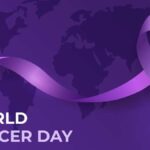
• 124,815 Nigerians diagnosed with cancer per year
• Treatment cost ranges between N10 million and N30 million per patient
• Early detection, treatment remain key to good outcomes
As countries marked World Cancer Day yesterday, the high cost of care in Nigeria amid seething poverty among the population has emerged as a top factor for the growing rate of cancer morbidity and mortality in the country.
Figures show that no fewer than 124,815 Nigerians are diagnosed with cancer yearly, but due to lack of adequate care and affordability at least 78,899 die every year.
Caregivers estimated that an individual may require between N10 million to N30 million to achieve a cure, which is defined as up to five years of good quality of life post-treatment. But not many can afford that luxury in a country where more than 80 million are multidimensionally poor and reckoned to live on less than $2.15 (about N3000) a day.
Meanwhile, over 40 per cent of cancers can be prevented including those triggered by viruses such as cervical cancer largely caused by Human papillomavirus (HPV), some types of liver cancer caused by hepatitis B and C, and another 40 per cent of cancers could be cured from early detection.
The figures from the National Cancer Control Programme (NCCP) of the
Federal Ministry of Health and Social Welfare, National Institute for Cancer Research and Treatment (NICRAT), African Organisation for Research and Training in Cancer (AORTIC) and African Cancer Coalition (ACC) show that many people have their cancers diagnosed early, but resort to herbs and religious houses, and only return to the hospital at stages three and four – when little can be done to salvage it.
World Cancer Day 2024, with the theme: “Close the Care Gap”, rallied understanding in recognising the inequities in cancer care globally. The last of the three-year campaign on closing the care gap recognised the power of working together across the board to make a difference in creating a cancer-free world.
The campaign demands of leaders a commitment to prioritise cancer, create innovative strategies designed to confront inequity and to invest resources to achieve a just and cancer-free world. It also calls on leaders to eliminate health inequities by addressing their root causes, ensuring that everyone has access to quality health services when, where and how they need them.
Local figures show that some levels of cancer treatment are being covered by the National Health Insurance Authority (NHIA), while the NCCP/NICRAT is also working with the Authority to cover more cancer care services.

The Federal Government had in July 2023 unveiled the NICRAT to combat cancer and advance oncology.
NICRAT, which was established under the NICRAT Act of 2017, is charged with the responsibility of providing national leadership in cancer research, treatment and control, among other things.
A consultant to NCCP/NICRAT, former president of AORTIC and former Minister of Health, Prof. Isaac Adewole, told The Guardian that the total number of new cancer cases in Nigeria in 2020 was 124,815, of which 51,398 occurred in males with prostate cancer being the commonest at 29.8 per cent and 73,417 occurred in females with breast cancer being the commonest at 38.7 per cent, followed by cancer of the cervix at 16.4 per cent. An estimated 78,899 cancer deaths occur yearly.
Adewole, who is a professor of Obstetrics and Gynaecology and a former vice-chancellor of the University of Ibadan, Oyo State, said the most common cancers in the world are breast, lung, colon rectum and prostate cancers. Still, the most common types of cancer in Nigeria are breast, cervix, prostate, and liver, with breast and cervical cancers recording the most deaths for women, and prostate cancer for men.
He said the most common in 2020 (in terms of new cases of cancer) were: breast (2.26 million cases); lung (2.21 million cases); colon and rectum (1.93 million cases); prostate (1.41 million cases); skin (non-melanoma) (1.20 million cases); and stomach (1.09 million cases).
Adewole, who is also Co-Founder of ACC, said the most common causes of cancer death in 2020 were: lung (1.80 million deaths); colon and rectum (916,000 deaths); liver (830,000 deaths); stomach (769,000 deaths); and breast (685,000 deaths).
He said, each year, approximately 400,000 children develop cancer and the most common cancers vary between countries with cervical cancer as the most common in 23 countries.
Adewole said that as of 2023, 72 per cent of people in Nigeria were not directly affected by cancer, neither were their family members, but the other 28 per cent of people had either cancer or one of their family members did.
On how many Nigerians that have survived cancer and the survival rate, Adewole said with advancements in medicine and technology, more people are surviving cancers, but, in Nigeria, many cancer patients in the country could have survived but often present late to the hospital for treatment. “There was an absence of data on this aspect of cancer in Nigeria,” he said.
The cancer advocate said a significant proportion of the increase in the incidence of cancer in Nigeria is due to increasing life expectancy, reduced risk of death from infectious diseases, increasing prevalence of smoking, physical inactivity, and obesity as well as changing dietary and lifestyle patterns.
Adewole said a common reason for the rising incidence of cancer morbidity and mortality is the absence of effective services put in place by the federal and state governments.
National Coordinator, NCCP Federal Ministry of Health and Social Welfare and Acting Director Clinical Services, NICRAT, Abuja, Dr. Uchechukwu Nwokwu, said the commonest cancers in Nigeria vary with regions and states based on prevailing causative agents and capacity to detect and document them. He, however, said the overall commonest cancers in Nigeria are cancers of the breast, uterine cervix (cervical), prostate (in men), colorectal, liver, leukaemia, lymphomas lung, head and neck, etc. in that order.
Nwokwu said the exact number of Nigerians that have survived cancer is unknown. He said Nigeria has integrated a survivorship programme in her five-year strategic Cancer Control plan 2023-2028. “This will help us to implement activities that would document survivorship and have the records,” he said.
The National Coordinator said every part of Nigeria is affected by almost all types of cancers and the commonest ones as listed above are the overall common in Nigeria. He said what may account for some of them being more in some regions is probably due to expertise and capacity to detect/diagnose, manage and document them. He said that certain cancers are not documented in some places does not mean that such cancers do not exist in those places.

On the cost of treating cancer to a cancer patient daily, monthly, and yearly depending on the common types, Adewole said cancer treatment in Nigeria costs nearly N30 million per patient.
The former Minister of Health said women in Nigeria need about N2.1 million to N29.2 million to treat breast cancer depending on the type of breast cancer.
He said the woman would have to go through different stages of diagnosis, chemotherapy, and surgeries among others to get treated.
This, he said, includes eight series of diagnosis that cost between N232,000 to N311,000; three surgeries which cost N670,000 to N3.3 million; 10 sessions of chemotherapy that cost about N916,000 to N2.6 million and finally 10-23 sessions of radiotherapy, which may cost N138,000 to N360,000.
On whether cancer treatment is included in the National Health Insurance Authority (NHIA), Adewole said an evaluation of the former National Health Insurance Scheme (NHIS) benefits package from October 2020 revealed that cancer care is not listed as part of the benefits offered by the scheme.
“Additionally, Computed Tomography (CT) and Magnetic Resonance Imaging (MRI) scans – diagnostic tests that are crucial to identifying most cancers – are only partially covered by the NHIS. But recently NHIA now covers some percentage of cancer treatment,” he said.
Meanwhile, researchers had recently predicted that cancer cases and deaths in Africa could double by 2040.
According to findings from a study published by Sharma et al in the journal Frontiers in Medicine, cancer cases and deaths are expected to double in Africa over the next two decades. The study also revealed that the region lacks sufficient healthcare resources and infrastructure to handle this growing cancer burden.
On what the FG is doing and should do to reverse the trend, Adewole said to strengthen national policies and programmes to raise awareness, reduce exposure to cancer risk factors, and ensure that people are provided with the information and support they need to adopt healthy lifestyles.
He said a national cancer policy is being developed and implemented in Nigeria to overcome the present limitations, as well as a patient-centred policy with an emphasis on risk factors control, cancer disease screening and primary cancer prevention.
Adewole urged FG to strengthen national efforts to address the burden of cancer and other non-communicable diseases (NCDs), in collaboration with international organisations like the WHO Global Action Plan for the Prevention and Control of NCDs 2013–2020, which provides a road map to reduce premature mortality from NCDs by 2025 through targeting many of the risk factors.
He said the main policy adopted by the Federal Government is a multi-sectoral and multi-disciplinary approach to combat cancer under the following tenets: primary prevention of cancer; early detection of cancer; diagnosis and treatment of cancer; pain relief and palliative care; cancer surveillance and research; coordination of cancer prevention and control activities; and monitoring and evaluation.













